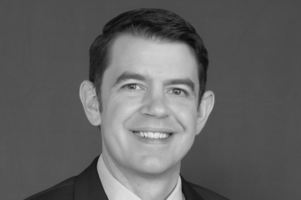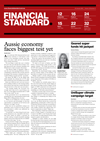Retirement heavyweight pitches climate fixBY ROSE MARY PETRASS | THURSDAY, 27 JUN 2024 1:45PMTop retirement specialist Jeremy Cooper has taken up the decarbonisation challenge with an ESG strategic advisory position - and he has a proposal that will shake up the industry. Cooper joins multinational professional services firm MinterEllison's ESG team, part of the firm's ESG and Sustainable Business Centre of Excellence. The renowned non-executive director has historically operated within superannuation and financial services. He was previously ASIC deputy chair. In March this year he pivoted, taking up a chair position on the carbon advisory board to help Future Group set science-based carbon reduction targets - inspired by the A$44,3 billion Norges Bank Investment Management (NBIM). He joins the firm amidst a leadership overhaul, making 158 senior appointments, including 17 special counsel, two executive directors, three directors, 47 senior associates, 85 associates and four senior managers. The appointments build on the recent appointment of nine new partners, including Alex Skilling Jarryd Gray in the environment practice, and David Perks, energy and resources expert in the West Australian market. Cooper will be working alongside Ruth Stringer, partner in superannuation, and Paul Schoff, ESG Lead and partner in the competition, climate and technology practice. Cooper has had a wide-ranging career spanning over four decades including at law giant Ashurst, at ASIC, the Cooper Review, and Challenger Limited. This year he took up a non-executive director position at Bennelong Funds Management. He has been a committee member at SMSF Association's public policy committee for the past six years. "I'm very interested in sustainable finance - helping transform businesses to embrace sustainability to adapt and thrive as we race to 2030 and 2050. My move to MinterEllison is a perfect fit with so many financial policy initiatives scheduled for implementation in the next few years." Working with the University of Technology Sydney's One Earth Climate Model, the project seeks to explore new ideas for the industry, "something robust and workable," and take that information to government. He's taken up the part-time role because he enjoys a challenge, and "The biggest challenge facing superannuation is climate. This needs to be fixed pronto." Many superfund members will live beyond the current timeline climate scientists use, Cooper had previously written for the AFR: "a directive to maximise returns over a mere decade, without considering other factors, seems to miss the point entirely." It's an industry is still "struggling" with how to implement the new climate-related disclosure rules, he tells FS Sustainability. "Disclosure is a necessary but insufficient condition. It doesn't shift the dial enough." The solution? He is open to ideas, but at present it goes roughly like this: Mandate decarbonisation for the Future Fund, change the performance test, and introduce an equivalent to the safeguard mechanism. The Future Fund should also follow the Future Group (and NBIM) by having its own separate climate advisory board. "It would be very straightforward to mandate decarbonisation at the Future Fund level. Once you've done that, you can do the whole super system." "Enlisting the Future Fund in this fight would also send a signal of expectation to the wider super industry. Carbon advisory boards might quickly become the norm. The fund is ideally placed to set the standard here." Australia's super system should follow the EU's index alignment with 1.5°C and net zero by 2050, the Climate Transition Benchmarks (CTB) and Paris-Aligned Benchmarks (PAB), he says. There is "great enthusiasm" for what he's proposing, he says. Related News |

Last week the NSW government delayed closure of the Eraring Power Station, back-pedaling on a previous decision to close it next year.
Association of Superannuation Funds of Australia (ASFA) chief executive Mary Delahunty said at the Australian Shareholders' Association Conference yesterday that addressing the supply side of the housing crisis requires an infusion of private capital.
The International Financial Reporting Standards (IFRS) Foundation is working with the Global Reporting Initiative (GRI) to make their standards more compatible.
The 50 most influential ESG professionals working at ASX-listed companies have been named by trade publication FS Sustainability in the 2024 ESG Power50 guide.















